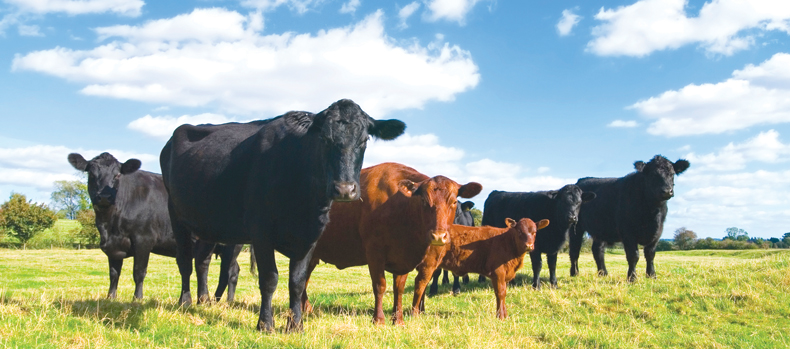The importance of trace elements in cattle & sheep

As livestock producers, we understand the fundamental importance of the health of our livestock; which can be presented through performance indicators such as wool growth, milk production, and weight gain.
Essential minerals are often passed off as a trivial aspect in the scheme of livestock nutrition. However, they are a massive player when it comes to the importance of health, growth, reproduction and general maintenance of animals.
Deficient in one mineral or more?
In different areas of Australia, certain essential minerals are not at adequate levels to meet livestock performance requirements. Over time it has become evident that if your livestock are deficient in one essential mineral, it is most likely that they will be deficient in two or more essential minerals. This is because functions within the body often depend on one or more essential minerals for the function to play out. Dietary levels of one essential mineral may be sufficient for one function, yet there may not be enough for another function. Thus, the essential mineral deficiency could result in the poor production of the herd or flock.
On the other side of the scale, there are areas within Australia that have adequate to abundant levels of essential minerals. In these cases, you would have to monitor the supplementation you use. The reason is, too much of some minerals such as Copper and Selenium can lead to toxicity of the animal. Most of the time, animals know what they are lacking or if they have an abundant supply. It is up to us, the livestock producers, to be able to detect and read the signs and signals that our animals are presenting.
When it comes to the dietary intake of essential minerals, we know that our animals need them, but do you know why and how these essential minerals are benefiting your stock? The following elements make up part of the Beachport Liquid Minerals livestock supplements and play an immense role in the health of your livestock.
Major Elements: Essential minerals that the body requires larger amounts of.
- Phosphorus – key functions in metabolic pathways and physiological functions; such as…
- Development and maintenance of skeletal tissue
- Energy utilization and transfer
- Protein synthesis, transport of fatty acids, and amino acid exchange
- Growth and cell differentiation
- Appetite control, efficiency of feed utilization and fertility
- Potassium – works alongside Sodium, Chlorine and Bicarbonate ions in Osmotic regulation. An important role in the nervous system, muscle functions, and carbohydrate metabolism.
- Sulphur- assists in Microbial digestion and protein synthesis as Sulphur occurs in proteins which contain the amino acids Cystine, Cysteine, and Methionine.
- Magnesium – linked closely to Calcium and Phosphorus. 70 % of Magnesium is found in the skeleton and the remainder is utilized in soft tissues and fluids. Magnesium plays a vital role in cellular respiration, cellular biochemistry and function, active transport system and the nervous system. Also helps with prevention of grass tetany (Hypomagnesaemia) and milk fever.
Trace Elements: Essential minerals which are important to daily functions but only required in small amounts.
- Copper – is a component in proteins involved in the blood which helps with blood health and growth of the animal.
- Cobalt – required by the microorganism in the rumen for the synthesis of B12; also functions as an activating ion in enzyme reactions.
- Iodine – very small amount is present in the body. Iodine is required in the synthesis of the hormones produced by the Thyroid gland. From the synthesis of the hormones produced by the thyroid gland, Iodine also plays a role in fertility, immune defence, digestion, and muscle function.
- Manganese – only a tiny amount needed; important as it acts as an activator of enzymes. It has been found it helps with growth, skeletal development, fertility, and reproduction.
- Zinc – is found in every tissue in the animal’s body. Important to animals as it aids in skin, wool, hair and hoof health. Zinc is also involved in nucleic acid metabolism as well as the immune system and electrolyte balance.
- Selenium – involved with Vitamin E in the immune system to protect against heavy metal toxicity. Selenium also assists in the production of the thyroid hormone and tissue health of young animals.
Beachport Liquid Minerals livestock supplements not only contain these essential and trace minerals that our livestock require, but it also contains naturally occurring electrolytes and amino acids through the use of seagrass/ kelp. With this combination, it can improve the absorption of trace elements into the bloodstream. This 3-in-1 formulation aids in feed conversion of both dry and green feed, assisting in weight gain and improved utilization of whatever your livestock are intaking. The unique formulation has absorption and retention qualities naturally increasing the production of livestock.
Click here to find out more about the benefits of Beachport Liquid Minerals supplements and how they can assist the health of your livestock.
Kate Fairlie
B.Agricultural Science
